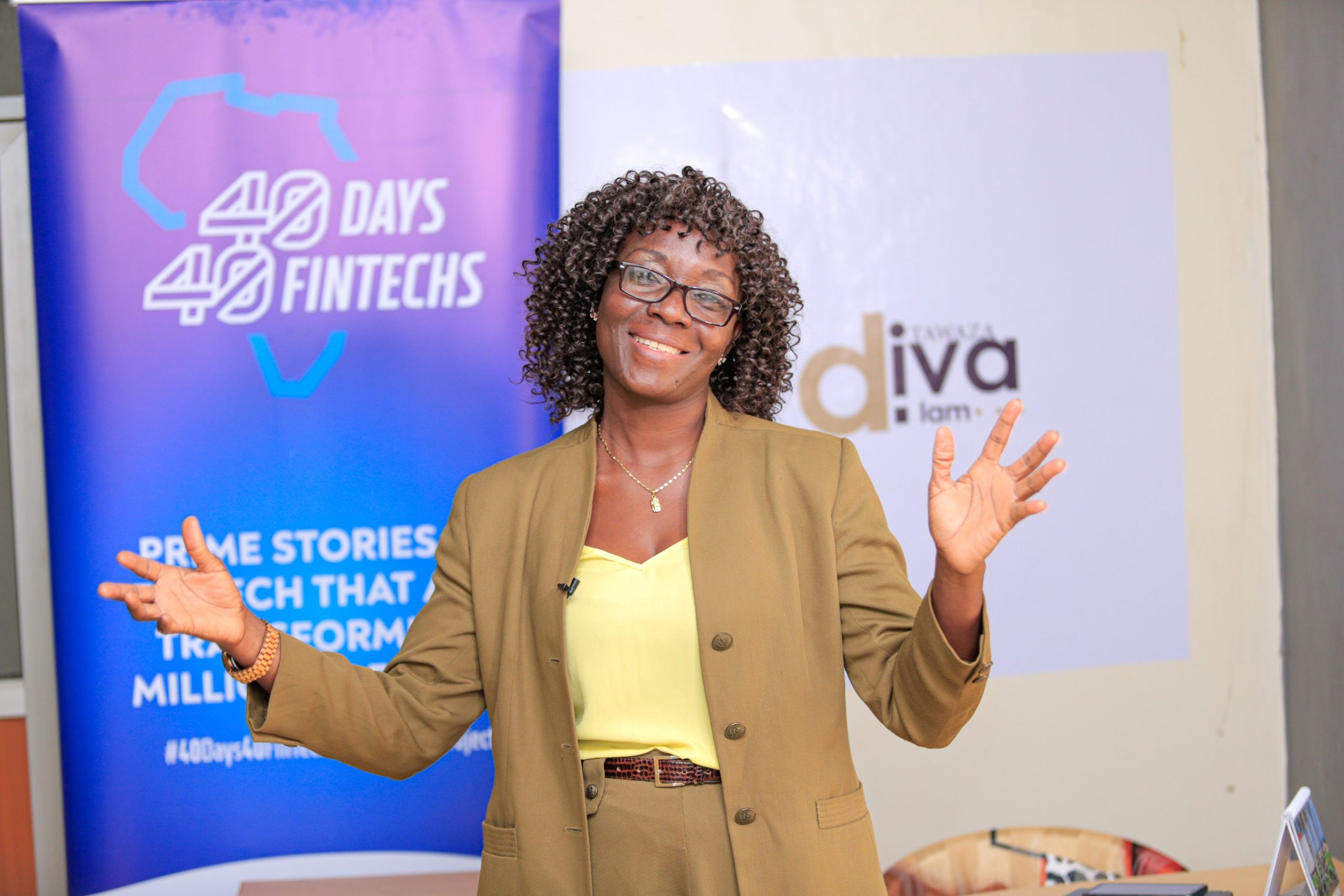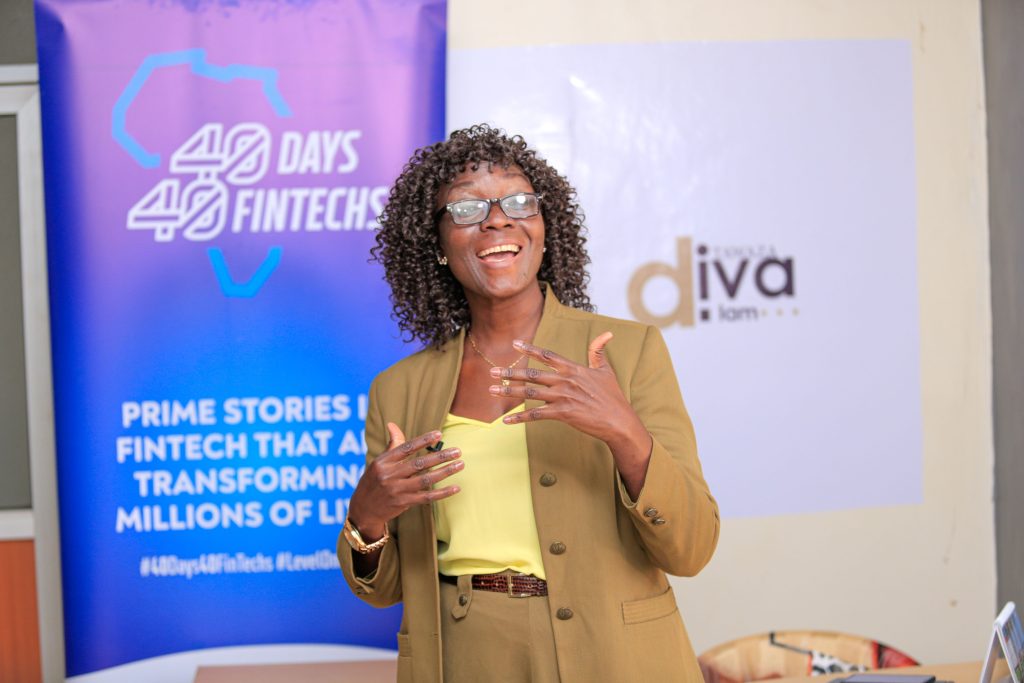Tawaza Diva is helping over 1,000 women and youth access digital loans

Our Reporter.
Many Ugandans are full of business ideas but their biggest bottleneck is the lack of capital and inability to access credit. For a financial institution to give your business a loan, they will ask for a trading license, national ID, bank statement, tax report among others.
They therefore get stuck in the informal sector where growth and expansion is very limited.
This is one of the reasons why Tawaza Diva was formed, to, first, provide affordable finance to women and youths in the rural and informal sector but also to transition them into the formal sector.
According to Winfred Nandawula, the TAWAZA Program Director, Tawaza Diva is a product of Tawaza Initiative, a development solutions hub established in 2018 currently operating as a non-deposit-taking financial institution. Tawaza has so far changed lives of more than 1000 women and youth in the rural and informal sector by giving them micro loans.
Nandawula says her passion for financial inclusion dates back to 2012 when she harbored the idea of teaching women some financial literacy, especially how to save for the future.
“The idea didn’t pick up at all,” she says, noting that she realized that the problem was actually bigger than financial literacy; it was financial inclusion
“As women, the social-cultural norms do not allow us to step out there and access finance because we need collateral, guarantors and sometimes banks would ask us to have our husbands sign for us…so, access to finance was difficult. We realized the actual problem was the limited penetration of banks. There were no branches in rural areas. That is when mobile money started and we were excited. We said this will increase financial inclusion.”
But although mobile money significantly improved financial inclusion, people took time to accept it, especially in the villages.
“They were skeptical about storing their money on the phone…what if it gets lost? That is why they chose to keep money at home or in kiosks and they end up losing it all in case of a fire outbreak or break-in. So, we had to teach people about technology and how these platforms work, safely.”
Since inception in 2018, Nandawula says Tawaza has picked pace, especially after the Covid-19 pandemic. The platform now boasts 86 individual borrowers and more than 600 people clustered in women and youth groups.

She, however, acknowledges the challenge that borrowers are finding it difficult to repay the loans, due to the bad business environment posed by the post-Covid effects.
“Our target now is to onboard these women and youths from the informal sector into the formal sector. This will help us access bigger credit/stimulus from partner banks or even Uganda Development Bank,” she says.
“There is not much that can be done if we don’t get women and youth into the formal sector…So, we are trying to formalize them without creating much tax burdens and other requirements.”
Meanwhile, Nandawula appreciates #40Days40FinTechs initiative for being an advocate for the adoption of financial technology because there is an urgent need to demystify the bad attitude towards Financial Technology. She, however, wants better laws that protect both the customers and providers of digital financial services.
40-Days 40-FinTechs
Tawaza is the 14th participant in Season Three of the #40Days40FinTechs initiative that seeks to shine a light on the unique stories about innovations that are enabling ever more people to join the digital economy space.
The initiative is run under HiPipo in partnership with the Level One Project, Mojaloop, ModusBox, and Crosslake Technologies with support from the Gates Foundation.
According to HiPipo CEO Innocent Kawooya, Tawaza’s focus to bail out women and youths is core to HiPipo’s Include Everyone program.
“Women and young people are the drivers of the next generation. We must do everything possible to fully include them in the digital financial value chain,” he said.
He further called on digital innovators and FinTechs around East Africa to embrace 40 Days 40 FinTechs as Season three covers physical destinations in Uganda, Kenya, Tanzania, Burundi and Rwanda.
Kawooya added that this year’s edition will cement achievements of the previous editions – where over 60 FinTechs have been transformed – but also build on them to leverage digital financial inclusion in East Africa and beyond.
The #40Days40FinTechs platform is run under HiPipo’s broader Include Everyone program that also encompasses other initiatives such as FinTech Landscape Exhibition, Women in FinTech Hackathon, Summit & Incubator and the Digital and Financial Inclusion Summit and Digital Impact Awards Africa.
The platform offers participants useful tools and an introduction to the industry’s emerging technologies, such as Mojaloop Open Source Software, and guidance from Level One Project foundational material. The skills gained from this initiative cover Level One Project Principles, Instant and Inclusive Payment Systems (IIPS), Inclusive Finance and FinTech in general.
